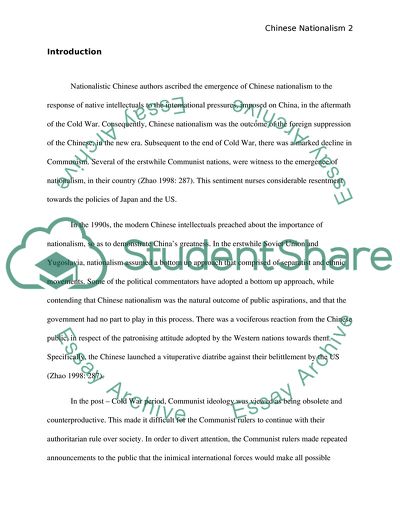Cite this document
(The Chinese Regime and Nationalism Dissertation, n.d.)
The Chinese Regime and Nationalism Dissertation. Retrieved from https://studentshare.org/social-science/1730504-what-use-has-the-chinese-communist-regime-made-of-nationalism-since-1989
The Chinese Regime and Nationalism Dissertation. Retrieved from https://studentshare.org/social-science/1730504-what-use-has-the-chinese-communist-regime-made-of-nationalism-since-1989
(The Chinese Regime and Nationalism Dissertation)
The Chinese Regime and Nationalism Dissertation. https://studentshare.org/social-science/1730504-what-use-has-the-chinese-communist-regime-made-of-nationalism-since-1989.
The Chinese Regime and Nationalism Dissertation. https://studentshare.org/social-science/1730504-what-use-has-the-chinese-communist-regime-made-of-nationalism-since-1989.
“The Chinese Regime and Nationalism Dissertation”, n.d. https://studentshare.org/social-science/1730504-what-use-has-the-chinese-communist-regime-made-of-nationalism-since-1989.


